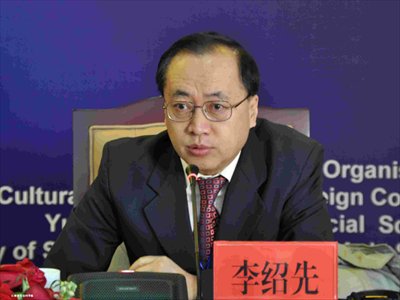Annan's Syria mission doomed from start


Editor's Note:
Russian President Vladimir Putin held a meeting with US President Barack Obama Monday during the G20 summit in Mexico. After the meeting, both parties have expressed a wish to end the violence in Syria and their support for UN Special Envoy Kofi Annan's six-point peace plan. What would a possible future Syrian model be like? What kind of role the international community and the domestic forces in Syria will play in solving the Syria issue? Global Times (GT) reporter Fu Qiang talked to Eyal Zisser (Eyal), dean of Humanities and the Yona and Dina Ettinger Chair of Contemporary Middle Eastern History at Tel Aviv University, and Li Shaoxian (Li), vice president of the China Institutes of Contemporary International Relations, on these issues.
GT: Will Obama and Putin's support for Annan's plan have any effect in helping solve the crisis?
Li: Unfortunately, I am afraid no pragmatic progress has been made to solve the Syrian crisis during Putin and Obama's meeting. Especially for the US, the declaration of supporting Annan's proposal is used to clarify the US position on the Syrian issue.
In fact, the US and other Western countries have been secretly supporting the opposition groups in Syria. I don't currently see any practical solution for the Syrian crisis.
GT: How do you evaluate Kofi Annan's proposal for the Syrian crisis?
Eyal: I fully agree with the idea that Annan's six-point proposal was likely to fail from the very beginning. And the UN monitor mission has had little influence on the Syria situation. This is because nobody in Syria really wanted this plan to succeed.
There is a civil war there and each side is committed to his own cause. They want to gain international support and this is why they are ready to cooperate with the UN, but they are not serious about it.
Li: The proposal brought up by Annan aims to solve the Syria issue with political methods instead of external military intervention. The six-point proposal was permitted by the UN Security Council because all five permanent members of the Security Council agreed its application.
However, the West doesn't really support a peaceful solution for Syrian unrest. The West uses the method of removing the burning brands from under the boiling cauldron, which is the root of the formation of Syria opposition groups. But the deadlock in Syria can hardly be broken and Annan's proposal is still the only solution in the current phase.
GT: What's the main reason for the failure of the expected ceasefire in Syria?
Eyal: The Syrian regime and the opposition are not interested in such a mission. They expect to win the battle militarily.
The Syrian regime is still influential on Syrian domestic politics and will not give up settling the unrest through military means. In particular, it's not ready to give up control of the regime. So what I expect is the continuation of the bloodshed till the regime wins or falls.
Li: The unrest in Syria is part of the Arab turmoil. The volatile situation in Syria and the failure of the ceasefire reflects a fragmented Syria. Syria's religious and ethnic diversity comes from its history as part of the Ottoman Empire, followed by French colonial rule.
Currently, the West and some Middle East countries, including Saudi Arabia and Qatar, are promoting regime change in Syria because they want to weaken the power of Iran, a newly emerging force in this region and an important ally for Assad.
If the West doesn't stop its actions, Syria may flow with rivers of blood in the future.
GT: Is it still possible to solve the Syrian crisis without external interventions? If not, what could a Syrian model possibly look like?
Eyal: China and Russia's appeal on the Syrian issue is very close to Annan's six-point proposal.
However, the suspension of the monitor mission does not mean the failure of China or Russia's strategic proposal in the Syrian crisis, but is related to the Syrians themselves.
I am afraid the crisis can not be solved peacefully. The victory of either side, the regime or the opposition, means the defeat and maybe the annihilation of the other side, as in many civil wars during history.
Recently, Russia has offered to organize an international conference with members including the neighboring countries of Syria, important nations in the Middle East and other regional organizations, discussing the Syrian crisis.
Li: Currently external forces are not able to interfere in the Syrian crisis. The West appeals for regime change but the conditions for a military intervention are not mature. The US doesn't want to take the risk.
In this sense, the deadlock in Syria, where the government forces can still control the situation while the opposition groups have kept on challenging the regime, can hardly be broken.
In the future, only if some changes occur at the top level of the Syrian government can the deadlock be broken. But after all, the future Syrian model will be decided by the internal forces instead of external intervention.